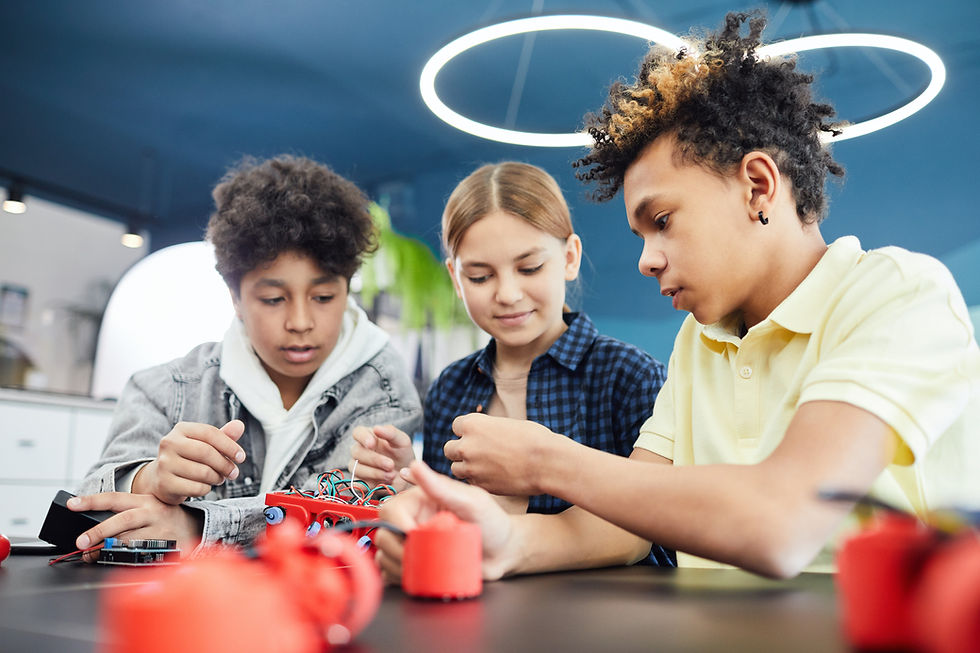By Molly O. Kellogg.
In my first article, I addressed the misperception of giftedness and a growth mindset as mutually exclusive elements of education. The opposite is actually the reality. In order to develop a growth mindset in gifted learners, in ALL learners, we as teachers must provide them with appropriately challenging learning experiences to stretch their thinking muscles and teach them how to persevere through truly engaging problems and questions. I was prompted to address this misperception when I discovered its prevalence amongst many dedicated and well-meaning educators who perceive the existence of gifted support services as exclusionary to other students.

A few years after a conversation with a concerned colleague about gifted services being at odds with the development of a growth mindset, I found myself in an even more alarming conversation with an administrator. She, too, felt that identifying gifted students was at odds with the goal of nurturing a growth mindset in school. She argued that the other students would get the message that no matter how hard they work, no matter how much they learn, they will never be as smart or as capable as the students identified as in need of gifted services. These students will stop trying and develop a fixed mindset. I was shocked. Is this the wave of thinking across the nation? I wondered. Is the increased focus on developing a growth mindset in schools making school boards, administrators and teachers believe that gifted programming is detrimental to the environment of the school and at odds with the positive messages we’re trying to give all students?
I think this administrator missed the point altogether. As educators, our goal is to develop a growth mindset in all students by giving them chances every day to tackle hard challenges, solve real problems and dig into messy questions. Part of the work of developing a school environment that nurtures a growth mindset includes developing the understanding that all students grow and learn in different ways. Thus, children become comfortable working in a learning environment where their peers are applying various skill sets and delving into different elements of the work at hand. They become used to different teachers working with different students. They become accustomed to fluid grouping. Everyone’s work is valued and valuable. If we are only giving interesting and valuable work to the identified gifted students, then we as teachers are at fault. The answer is not to eliminate gifted services for those who truly need them. The answer is to provide all students with engaging and appropriate learning experiences, emphasizing the importance of a growth mindset for everyone along the way.
This message is particularly important right now in light of current conversations across the nation about the elimination of gifted services and concerns about their inequities. Once again, concern creates confusion. The focus on the negative consequences of incomplete and unbalanced identification processes for gifted services in some schools has led many people to conclude that gifted education should be replaced with enrichment for all. This does a great disservice to all of our students. We should certainly provide enriching and engaging learning experiences for every child. In doing so, we must differentiate those experiences to meet the vast array of skill levels in the general classroom. This includes gifted learners. These kids learn faster, deeper and in a more nuanced way than their same age peers. They need modifications to experience new learning. Enrichment appropriate for all students is not going to meet the needs of a gifted learner outside the norm.
What we need to do is take a close look at how we find these kids. Are our identification tools varied, comprehensive and inclusive? The need is still there; gifted kids are still there. The answer is to strengthen and improve our ability to find gifted learners, not to eliminate their services all together. We as adults must employ a growth mindset when we look at our concerns over inequity in the identification of gifted learners. How can we learn from mistakes we have made and improve the screening tools and process to make sure we’re finding all gifted learners who need targeted services in order to learn and flourish in school and beyond?
My message to my well-intentioned colleague, my concerned administrator and educators and community members across the nation is this: every child has the right to learn something new every day, and it is our job as teachers to make sure that happens. Finding gifted learners and providing them with appropriate learning experiences is a part of that directive. By doing this important work, we give gifted learners the chance to develop a growth mindset, preparing them for a life of difficult situations, messy problems and big questions. In essence, it’s the same vital task we face each day with every student. It’s hard work. But that is why we are teachers. Teachers with grit!
________________________________________________________

Molly Kellogg is a teacher and consultant with twenty-four years in education, more than half of which focused on gifted education. She is the coauthor of a professional book for teachers, A Field Guide to Gifted Students: A Teacher's Introduction to Identifying and Meeting the Needs of Gifted Learners (Prufrock Press, 2020). She enjoys being outside (anywhere), baking (especially with chocolate) and creating (ask her about her two year knitting project; hint: legwarmers). She lives in Brunswick, Maine with her husband and two young children.
